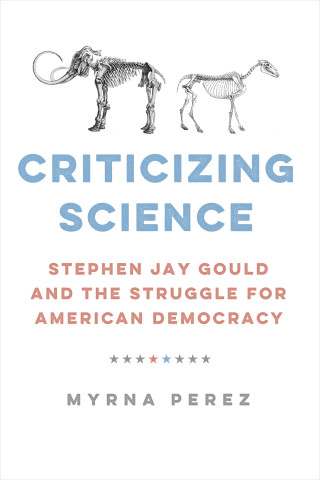It was in the midst of this political tumult that Wilson’s book (alongside other texts on the evolution of social behavior, including Richard Dawkins’s 1976 The Selfish Gene) promoted a new evolutionary narrative that claimed that contemporary American gender roles were the products of prehistoric adaptations encoded in humanity’s genes. Sociobiologists like Wilson and Dawkins envisioned a prehistoric past in which women gathered food and lived in family camps, while men went out to hunt and seek new sexual partners. In subsequent decades, scientists and nonscientists alike would deploy this narrative in both scientific and popular settings to rationalize gender disparities in STEM fields and the workplace and to naturalize rape. Gould’s criticism of Wilson was joined by critiques developed by other leftists from the sciences and the humanities, who viewed sociobiology as reactionary politics rather than sound science. And the sustained protest against the sexism of sociobiology over the next two decades would be led by the leaders of feminist science collectives, including Ruth Hubbard, a biologist at Harvard, and Ethel Tobach, a psychologist at the American Museum of Natural History.
Before sending his column on sociobiology to Natural History for publication, Gould sent a draft of it to Wilson. Wilson’s outraged reply and the subsequent exchange between the two men reveals far more than just the contours of their personal animosity. As expressed in his letters to Gould and in later publications, Wilson had a more classically liberal view of science’s proper role in American democracy. Liberals view science as truthful knowledge that serves as a foundation for an enlightened society to guarantee equality and enact rational governance. Thus, they consider science essential for democracy, but they do not prioritize a democratic approach to the actual practice of science. As liberals see it, even when science is only done and understood by a few elite white men, the reliability of its knowledge of the natural world enables it to be the foundation of an equitable society.
This understanding of science and democracy was unacceptable to Gould, as well as to other leftists in the radical and feminist science circles that protested Wilson’s book. Although their understanding of science for the people was by no means consistent, members of these movements shared a conviction that the elitism of science impeded its capacity to support democracy. For leftists, the inclusion of women and minoritized racial groups in the professional practice of science was essential if science was to contribute to a progressive society. Wilson, for his part, characterized the attacks by Gould and others in what became known as the Sociobiology Study Group (SSG) as an attempt to restrict the freedom of scientific research and a worrisome sign of intellectual censorship.
